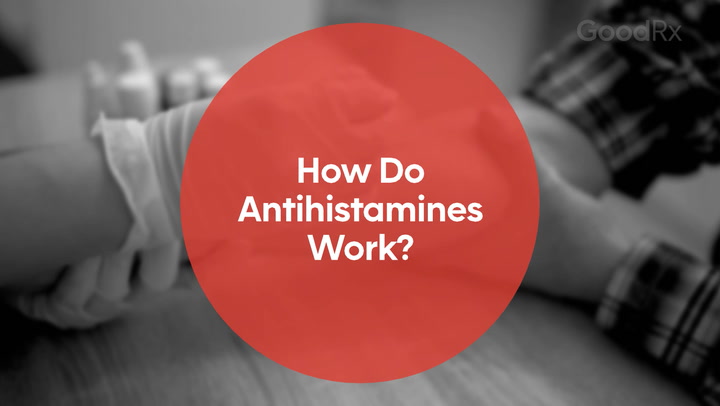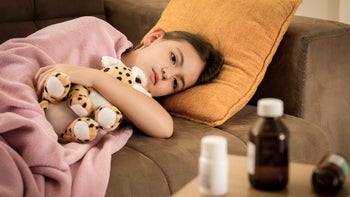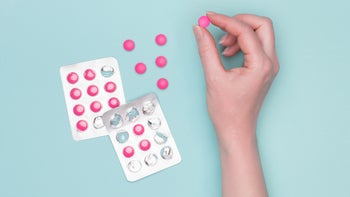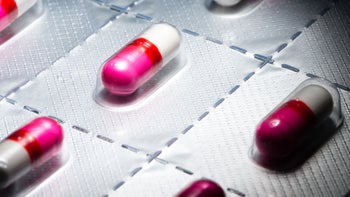
Can You Overdose on Benadryl? How Much Is Safe to Take?
Key takeaways:
Benadryl (diphenhydramine) is an over-the-counter (OTC) antihistamine. It’s available as a stand-alone product, but you can also find it in combination with other medications. It’s a common part of many OTC cough and cold products.
Benadryl can cause a wide variety of side effects. For most people, it causes sleepiness. But it can also lead to dry mouth, trouble urinating, or even hallucinations.
A Benadryl overdose can be life-threatening. It can lead to severe agitation, loss of consciousness, and seizure. If you think that someone took too much Benadryl, call 911 immediately.
Table of contents

Benadryl (diphenhydramine) is a common over-the-counter (OTC) medication found at pharmacies and grocery stores. People take it for several reasons, including seasonal allergies, the common cold, and motion sickness.
Generally speaking, Benadryl is a safe, non-prescription medication — so much so that it’s often given to children. But, as with all medications, Benadryl has risks. This includes serious side effects and a risk of accidental overdose.
Before you reach for the Benadryl in your cupboard, it’s good to know the recommended daily dosages. Here, we’ll look at how much Benadryl is safe to take and how to recognize the signs and symptoms of taking too much.
Keep in mind: You can find Benadryl in several dosage forms, including tablets and capsules. Easier to swallow forms, such as liquid and chewable tablets, are also available.
Can you overdose on Benadryl?
Yes, it’s possible to overdose on Benadryl. Taking too much Benadryl can worsen or intensify many of its side effects. These can include mild symptoms, such as:
Drowsiness
Dry mouth
Trouble urinating
Constipation
The more Benadryl you take, the worse these side effects may become. In more severe cases, you may develop:
Severe agitation
Hallucinations
Seizures
Extreme drowsiness or loss of consciousness
Coma
Benadryl is widely available as a stand-alone product. But its active ingredient, diphenhydramine, may also be added to several OTC cough and cold medications. Advil PM (ibuprofen / diphenhydramine) and Sudafed PE Day + Night Sinus Congestion (phenylephrine / diphenhydramine) are two examples. You can also find diphenhydramine in OTC sleep aids like Unisom SleepGels (diphenhydramine) and ZzzQuil (diphenhydramine).
Since diphenhydramine is sold under several brand names and is often combined with other OTC medications, taking too much of it may happen accidentally.
One important takeaway is to always read the Drug Facts label for any OTC medication you take. Check for diphenhydramine in the active ingredients section. This will help you keep track of your total daily diphenhydramine intake.
What happens when you overdose on Benadryl?
Benadryl belongs to a group of medications called antihistamines. They work by attaching to histamine receptors (chemical binding sites) in your body and blocking its effects. Histamine is the substance that’s responsible for most allergy symptoms.
Histamine receptors are found all over the body, though. If an excessive amount of Benadryl attaches to histamine receptors in the central nervous system (the brain and spinal cord), you could develop overdose symptoms, such as slowed breathing and very low blood pressure.
At very high doses, this medication can also affect the heart, resulting in an irregular heartbeat.
Can children overdose on Children’s Benadryl?
Yes, it is possible for your child to overdose on Benadryl. Usually, this happens by accident. Often, it’s a result of giving your child a higher-than-recommended dose.
Benadryl and kids: Young children are at a particular risk for an accidental Benadryl overdose. Learn more about other common overdose culprits.
Over-the-counter (OTC) allergy medications: Benadryl is one of several OTC allergy medications. This guide provides insight into the best allergy products.
How much Benadryl can you take? This guide details recommended Benadryl dosages for adults and children.
Children under age 6 are at particular risk of accidental overdose because the Children’s Benadryl label doesn’t provide dose recommendations for this age range. And children younger than 2 years old generally shouldn’t take Benadryl at all. This can make it tricky to figure out what to do if you believe your young child needs Benadryl. In this case, the safest bet is to contact their pediatrician. They can recommend a safe dose based on your child’s age, body weight, and symptoms.
When giving your child Benadryl, it’s also important to use a proper medication syringe, cup, or spoon to accurately measure the medication. Using a standard household spoon out of the kitchen drawer can result in giving your child more than the recommended dose.
Most packages of Children’s Benadryl come with a marked cup for proper measurement. If you lose it or don’t have one, ask your pharmacist and they'll be happy to give you one.
How much Benadryl can you take?
The recommended Benadryl dosage for people ages 12 years and older is 25 mg to 50 mg every 4 to 6 hours. The most you should take in a 24-hour period is 300 mg. For children ages 6 to 11 years, the recommended dosage is 12.5 mg to 25 mg every 4 to 6 hours. Children in this age range shouldn’t take more than 150 mg per day.
If you’re taking Benadryl to prevent motion sickness, the same dosages are recommended. But you should take the medication about 30 minutes before the event that may cause motion sickness, such as setting sail on a boat.
For insomnia (trouble falling or staying asleep), adults and kids ages 12 years and older can take 25 mg to 50 mg about 30 minutes before bedtime as needed. Benadryl should only be used occasionally for this purpose and for no longer than 2 weeks at a time.
What should you do if you’re experiencing symptoms of a Benadryl overdose?
If you think you or your child are experiencing symptoms of a Benadryl overdose, contact a healthcare professional right away. If you believe you’ve taken too much Benadryl but aren’t experiencing symptoms yet, another option is contacting Poison Control online or at 1-800-222-1222.
If at any time a person who took Benadryl has any symptoms of overdose, call 911 or go to the nearest ER immediately. This includes:
Any change in behavior or confusion
Extreme drowsiness, or is difficult to wake up
Slowed breathing or trouble breathing
Loss of consciousness or seizure
Palpitations or racing heart rate
Inability to urinate
Benadryl overdose treatment
There is no one specific fix for a Benadryl overdose. But there are many different treatments that can help alleviate symptoms and prevent complications. This is why a Benadryl overdose should be treated in a medical setting.
Benadryl overdose treatment may include things like:
Heart monitoring
Treatments to steady the heart rate
Help with breathing, like oxygen or a breathing tube in severe cases
Medicines to help ease agitation or confusion
Antiseizure medications
Emergency medicine professionals sometimes also give activated charcoal to help reduce how much Benadryl the body absorbs. Activated charcoal is a product that attaches to medications in the stomach or intestines; substances that bind to activated charcoal are eliminated from your body without being absorbed into your bloodstream.
Frequently asked questions
It’s not recommended to take Benadryl every night for sleep. Benadryl is an anticholinergic medication. Anticholinergic drugs block a chemical that helps with memory and thinking. While Benadryl typically only causes temporary side effects, long-term use may contribute to issues like memory problems or dementia.
If you or your child are having a severe allergic reaction (anaphylaxis), call 911 without delay. There isn’t a dose of Benadryl that can treat a severe reaction, as Benadryl alone likely won’t be sufficient. If you have an epinephrine autoinjector (EpiPen, AUVI-Q), administer that while you await emergency personnel to arrive.
The bottom line
Benadryl (diphenhydramine) is an over-the-counter (OTC) antihistamine. It’s considered safe for most adults and children ages 6 years and older when taken as directed. But it’s found in many products, and it’s easy to accidentally take too much. Recognizing and treating the signs and symptoms of a Benadryl overdose, such as severe drowsiness and dry mouth, is important to prevent more serious complications. Contact emergency services immediately if you or anyone else has any signs of a Benadryl overdose.
Why trust our experts?



References
Church, M. K., et al. (2013). Pharmacology of antihistamines. Indian Journal of Dermatology.
Huynh, D. A., et al. (2023). Diphenhydramine toxicity. StatPearls.
Kenvue Brands LLC. (2024). Childrens Benadryl Allergy- diphenhydramine hydrochloride solution [package insert].
MedlinePlus. (2017). Histamine: The stuff allergies are made of.
MedlinePlus. (2023). Activated charcoal.
Reliable 1 Laboratories LLC. (2025). Diphenhydramine HCL 25 mg- diphenhydramine hcl tablet [package insert].
Sicari, V., et al. (2023). Diphenhydramine.
The Procter & Gamble Manufacturing Company. (2021). ZzzQuil Nighttime Sleep-Aid- diphenhydramine hydrochloride capsule, gelatin coated [package insert].
U.S. Food and Drug Administration. (2024). The over-the-counter drug facts label.
Was this page helpful?
Related Articles
Browse medications
View AllResearch prescriptions and over-the-counter medications from A to Z, compare drug prices, and start saving.




























